Animal Protection
concerns us all!
We've done a lot ...
but there's so much more to be done!

We've done a lot ...
but there's so much more to be done!


Many disabled people need help to manage their everyday life. In most cases nurses, family members as well as dogs are available. In the United States, the organization “Helping Hands” trains monkeys as helpers for handicapped people. The monkey educated there are capuchin monkeys. This rather small monkey species is usually domiciled in South America.
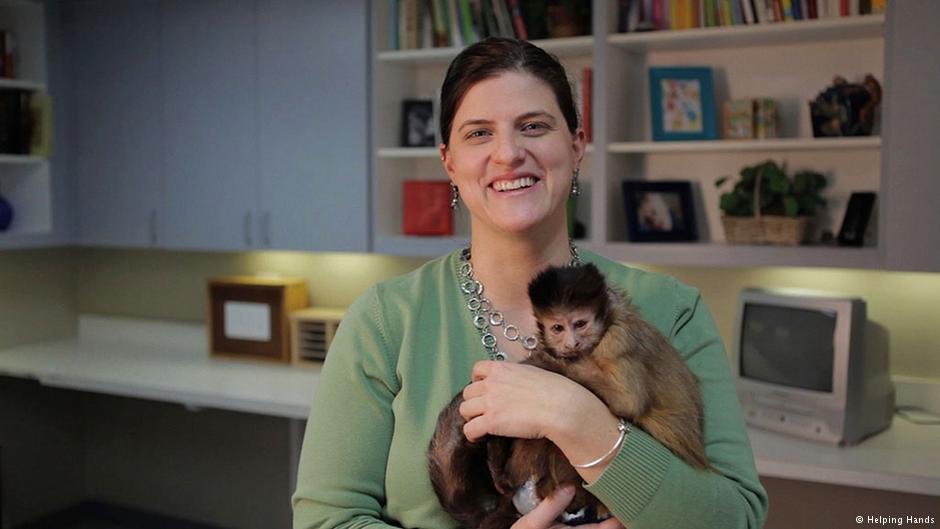
At a weight of around 4 kg and an approximated height of 50cm those animals feature high intelligence and very clever hands..
The primates are being trained in the country of unlimited possibilities, in the world’s sole “Monkeyschool” in Boston. Megan Talbert is the school’s headmistress and educates those animals with her team of instructors. Through positive confirmation and subdivided training unities the monkeys are being motivated as they imitate the demonstration of individual exercises. The Monkeys begin their education at the age of 8 to 10 - their life expectancy amounts up to 40 years.
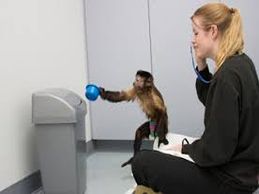
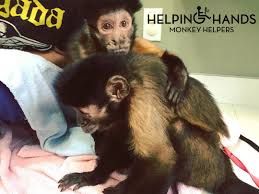
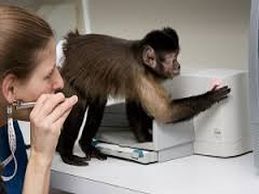
Their education includes about 30 different helping gestures, for example scratching itching spots, turning over newspaper or book pages, putting on patient’s glasses, operating with the light switch and the remote, bringing the table spoon and throwing away rubbish.

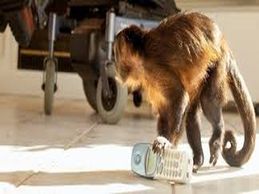
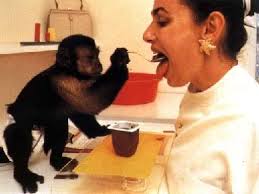
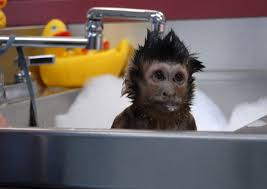
As soon as they have completed the basic teaching period the monkeys learn to handle wheelchairs, the bed, the kitchen furniture as well as the book shelves so that they’re able to help in case of emergency. This education is being effected following the reward principle - the animals are spoilt with treats and peanut butter. However they also make high demands. They can be compared to 3 year old children - including the need for a high amount of care and time. This involves a fixed meal plan, frequent showering and claw-caring.
To be able to have a monkey from Helping Hands live within a certain household it must be proved that there is a person living in the same house who attends to the high demands of the animal. Therefore all applicants have to undergo a severe inspection. Each monkey sees itself as an individual personality. Some of them prefer men as their contact person, others prefer women - some need dominant people, others need calm people to keep them company.
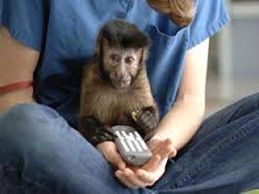
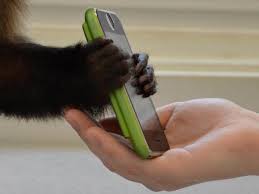
Helping Hands gets to know the applicants during the application process. The personality, the environment as well as the particular needs of the disabled person. If the decision is taken in the candidate's favor, the monkey-trainee stays in the household for one week - after that the monkey accepts its new companion as its leader.
The animals are important for paralyzed persons in several ways. On one hand, they can be life-saving, on the other hand, even though they can’t replace a full-time nurse, they help overcoming loneliness, depression, and pain and bring lots of joy while creating the feeling of having found a friend or a partner.

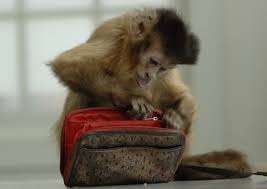
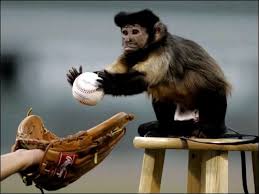
The training of a household monkey costs 40.000 USD. Disabled people don’t have to bear those costs themselves; donors pay for the monkeys' educational training. One of the most important donors is the “Robmar” foundation of Swiss-born Marie-Christine Jaeger-Firmenich.